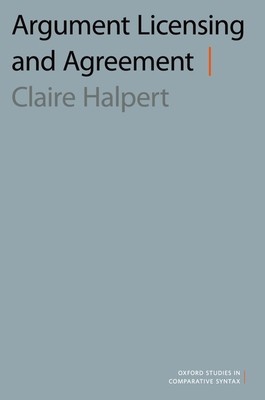
- We will send in 10–14 business days.
- Author: Claire Halpert
- Publisher: Oxford University Press, USA
- ISBN-10: 0190256486
- ISBN-13: 9780190256487
- Format: 15.5 x 23.1 x 2 cm, softcover
- Language: English
- SAVE -10% with code: EXTRA
Reviews
Description
The strikingly unrestricted syntactic distribution of nouns in many Bantu languages often leads to proposals that syntactic case does not play an active role in the grammar of Bantu. This book offers a different conclusion that the basis of Zulu that Bantu languages have not only a system of structural case, but also a complex system of morphological case that is comparable to systems found in languages like Icelandic. By comparing the system of argument licensing found in Zulu to those found in more familiar languages, Halpert introduces a number of insights onto the organization of the grammar.
First, while this book argues in favor of a case-licensing analysis of Zulu, it locates the positions where case is assigned lower in the clause than what is found in nominative-accusative languages. In addition, Zulu shows evidence that case and agreement are two distinct operations in the language, located on different heads and operating independently of each other. Despite these unfamiliarities, there is evidence that the timing relationships between operations mirror those found in other languages. Second, this book proposes a novel type of morphological case that serves to mask many structural licensing effects in Zulu; the effects of this case are unfamiliar, Halpert argues that its existence is expected given the current typological picture of case. Finally, this book explores the consequences of case and agreement as dissociated operations, showing that given this situation, other unusual properties of Bantu languages, such as hyper-raising, are a natural result. Thisexploration yields the conclusion that some of the more unusual properties of Bantu languages in fact result from small amounts of variation to deeply familiar syntactic principles such as case, agreement, and the EPP.
EXTRA 10 % discount with code: EXTRA
The promotion ends in 17d.15:22:39
The discount code is valid when purchasing from 10 €. Discounts do not stack.
- Author: Claire Halpert
- Publisher: Oxford University Press, USA
- ISBN-10: 0190256486
- ISBN-13: 9780190256487
- Format: 15.5 x 23.1 x 2 cm, softcover
- Language: English English
The strikingly unrestricted syntactic distribution of nouns in many Bantu languages often leads to proposals that syntactic case does not play an active role in the grammar of Bantu. This book offers a different conclusion that the basis of Zulu that Bantu languages have not only a system of structural case, but also a complex system of morphological case that is comparable to systems found in languages like Icelandic. By comparing the system of argument licensing found in Zulu to those found in more familiar languages, Halpert introduces a number of insights onto the organization of the grammar.
First, while this book argues in favor of a case-licensing analysis of Zulu, it locates the positions where case is assigned lower in the clause than what is found in nominative-accusative languages. In addition, Zulu shows evidence that case and agreement are two distinct operations in the language, located on different heads and operating independently of each other. Despite these unfamiliarities, there is evidence that the timing relationships between operations mirror those found in other languages. Second, this book proposes a novel type of morphological case that serves to mask many structural licensing effects in Zulu; the effects of this case are unfamiliar, Halpert argues that its existence is expected given the current typological picture of case. Finally, this book explores the consequences of case and agreement as dissociated operations, showing that given this situation, other unusual properties of Bantu languages, such as hyper-raising, are a natural result. Thisexploration yields the conclusion that some of the more unusual properties of Bantu languages in fact result from small amounts of variation to deeply familiar syntactic principles such as case, agreement, and the EPP.


Reviews